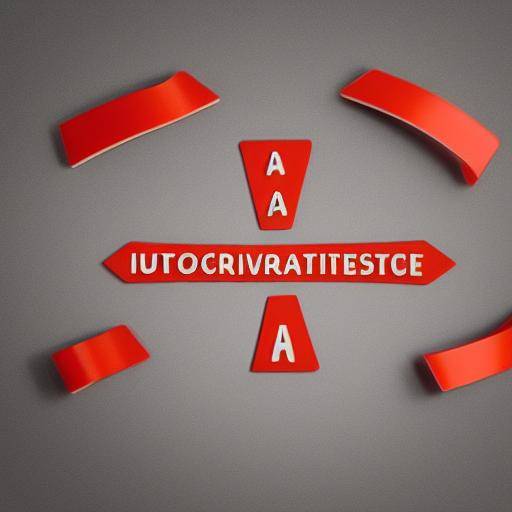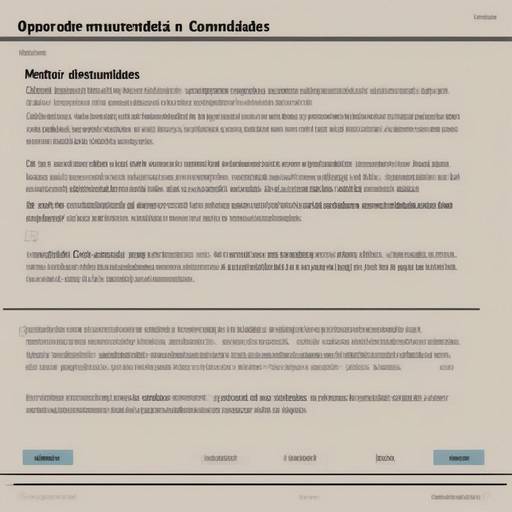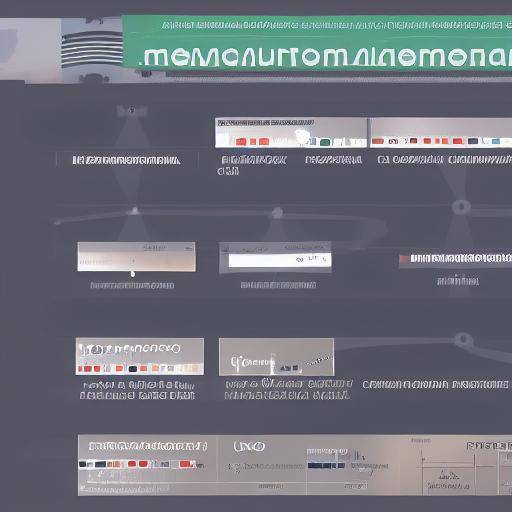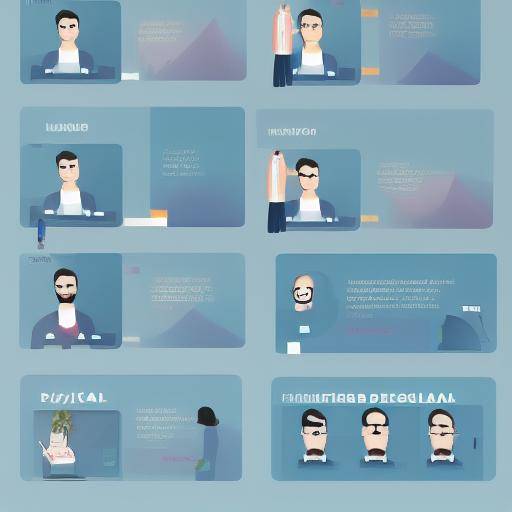
In the current era, where knowledge and information constantly evolve, developing self-discipline to maintain continuous education has become crucial. Self-discipline allows us to stay focused on our educational goals, resist distractions and overcome the challenges that may arise in the path of personal and professional growth. In this article, we will explore effective strategies to develop self-discipline, the importance of continuous education and the positive impact it can have on our personal and professional growth.
Self-discipline: The key to self-development
Self-discipline is the ability to maintain control over oneself, keep the focus on established goals and resist the temptations that could divert us from our path. In the context of continuing education, self-discipline plays a fundamental role as it allows us to engage with constant learning, the acquisition of new skills and continuous improvement. Developing self-discipline gives us the ability to overcome procrastination, maintain long-term motivation and achieve success in our educational companies.
The importance of continuing education
Continuous education has a significant impact on our personal and professional growth. In a world where skills and knowledge become obsolete quickly, continuing education allows us to stay up to date, acquire new skills and advance our careers. In addition, it gives us the opportunity to explore passions, expand our intellectual horizon and keep us relevant in a constantly changing working environment.
Strategies to develop self-discipline
Establish clear and attainable goals
Defining specific educational objectives gives us a clear course and helps us to keep the focus on our daily actions. By dividing long-term goals into smaller milestones, we facilitate the follow-up of our progress and motivate us in achieving tangible achievements.
Create routines and study habits
Establishing regular schedules for the study or acquisition of new skills helps us incorporate continuing education in our daily lives. By turning learning into a habit, it becomes less susceptible to distractions and excuses that might hinder our progress.
Use time management tools
Efficient time management is essential to maintain momentum towards continuous education. The use of time management techniques, such as Pomodoro, can increase productivity and minimize procrastination.
Cultivate internal motivation
Connecting our educational goals with our passions and personal values can boost our intrinsic motivation. Recognizing the personal and professional importance of our continuing education can strengthen our commitment to self-development.
Benefits of continuing education and personal growth
Continuous education and skills development have many benefits, both at the personal and professional levels. Some of these benefits include:
- Better labour competitiveness: Staying up-to-date with the latest trends and technologies makes us more attractive to employers and gives us greater opportunities for professional development.
- Extension of the professional network: Participation in continuous educational programs brings us into contact with individuals who share similar interests, which can result in valuable professional connections.
- Personal growth: Continuous education gives us the opportunity to expand our minds, acquire knowledge in new areas and live a more full and satisfying life.
Developing skills in a constantly changing environment
In an increasingly digital and globalized world, skills development has become a priority to keep up with the demands of the evolving labour market. Skills such as adaptability, creative problem solving and digital literacy are increasingly important in competitive and constantly changing working environments. Continuous education gives us the opportunity to acquire these skills and keep us competitive in a dynamic labour market.
The role of self-discipline in continuous learning
Self-discipline plays a crucial role in our commitment to continuous learning and skills development. By developing self-discipline, we can overcome barriers of self-control and procrastination, allowing us to stay focused on our long-term educational goals.
Practical advice to maintain self-discipline
- Establish an enabling environment for the study: Creating a quiet and distraction-free study space can improve concentration and facilitate the maintenance of self-discipline.
- Practice self-care: Maintaining a balance between work, study and rest is crucial to preserving the energy and focus needed for continuous learning.
- Find support and responsibility: Sharing our educational goals with friends, family or colleagues can provide the necessary emotional support and increase our responsibility to maintain self-discipline.
Final conclusions
The development of self-discipline is essential to remain committed to continuing education and personal growth. By incorporating effective strategies to develop self-discipline in our lives, we can make sure we stay motivated and focused on our continuous learning path. Continuing education offers countless advantages, both at the personal and professional levels, and the development of self-discipline provides the necessary basis for maximizing these opportunities.
Frequently asked questions
What is self-discipline and why is it important for continuing education?
Self-discipline is the ability to control our impulses, emotions and behaviors to achieve long-term goals. It is essential for continuous education, as it allows us to overcome procrastination, maintain the focus on learning and resist distractions that could hinder our progress.
What are the benefits of continuing education?
Continuous education offers benefits such as professional growth, networking expansion, skills development and personal growth. Staying up to date with the latest trends and technologies, expanding our professional network and acquiring new knowledge are just a few examples of the benefits that continuing education can provide.
How can I maintain motivation for continuous learning?
Maintaining motivation for continuous learning can be challenging, but setting clear goals, seeking emotional support, and connecting our learning with our passions and personal values can help us maintain motivation over time.
What are some effective strategies to develop self-discipline?
Establishing clear and attainable goals, creating routines and study habits, using time management tools and cultivating internal motivation are some effective strategies to develop self-discipline in the context of continuing education.
What is the role of self-discipline in the current working environment?
In the current working environment, self-discipline is crucial to keep us focused on our professional goals, resist distractions and overcome challenges. Developing self-discipline gives us the ability to keep up with the demands of the constantly evolving labour market and to acquire new skills.
How can I incorporate continuing education into my daily life?
Incorporating continuous education in daily life requires regular timetables for the study or acquisition of new skills, creating an enabling environment for learning and using time management tools to maximize productivity and minimize procrastination.
Conclusion: Self-discipline is essential to remain committed to continuing education and personal growth. By implementing effective strategies to develop self-discipline, we can make sure we stay motivated and focused on our continuous learning path. Continuing education offers countless advantages, both at the personal and professional levels, and the development of self-discipline provides the necessary basis for maximizing these opportunities.
In short, self-discipline is the driving force behind our commitment to continuing education and constant learning. By adopting effective strategies to develop it, we can open the doors to significant personal and professional growth. Continuous education, allied with self-discipline, is a powerful combination that allows us to prosper in a constantly evolving world.
Concluding, developing self-discipline to maintain continuous education is essential for our personal and professional development. By adopting effective strategies and cultivating study habits, we can overcome the challenges of continuous learning and enjoy its many benefits. Self-discipline and continuing education are key pillars for sustainable growth and a rewarding career.






















































